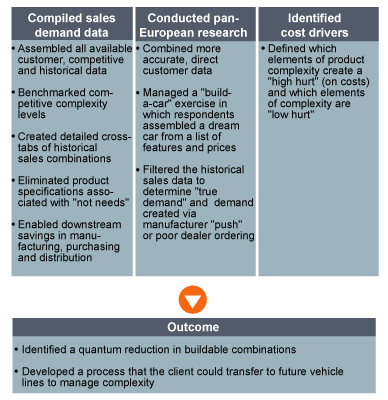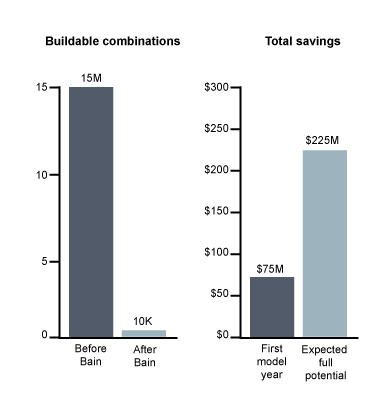The Situation
BigWheels*, a top-five car company, lacked customer focus. The company offered 15 million possible product combinations, yet did not know which combinations customers truly wanted.
As a result, BigWheels had a noncompetitive cost structure, poor manufacturing operating performance and excessive stocks at the manufactuere and at dealers.
To reverse BigWheels' poor performance, the company asked Bain to re-engineer major elements in its European value chain. The specific focus of the project was customer-driven complexity reduction.
Our Approach
To identify a massive reduction in buildable combinations, the team sought data to clarify which product specifications were in high demand and which were in low demand.

Our Recommendations
Upon quantifying that a minority of markets and products drove the great majority of sales, Bain recommended that BigWheels focus on the most profitable combinations and markets.

The Results
BigWheels approved and implemented a model year line-up with dramatically reduced complexity and substantial savings.

* We take our clients' confidentiality seriously. While we've changed their names, the results are real.


